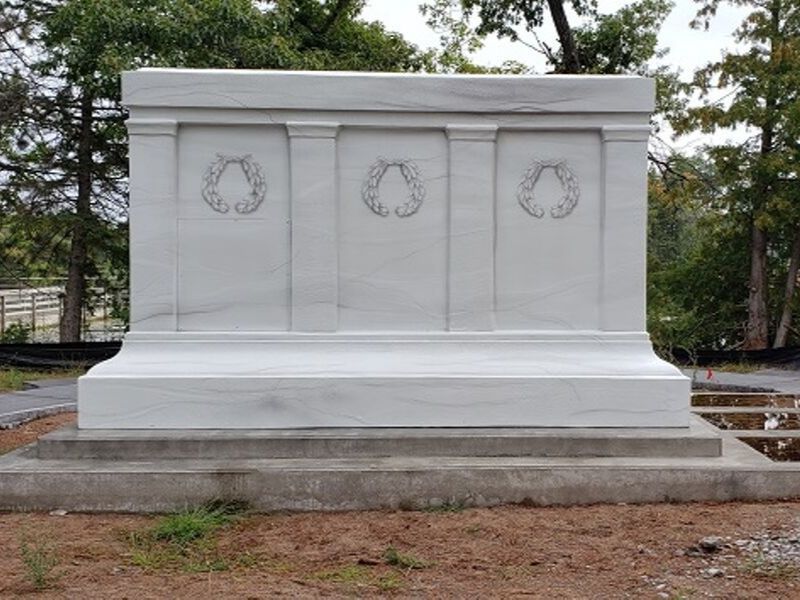The yule marble quarry where the marble for the tomb of the unknown soldier was mined in 1931 is high in the mountains above the town of marble about 30 miles south of carbondale.
The marble used for tomb of unknown.
Inscribed on the back of the tomb are the words.
In 1931 marble from the yule quarry was used for construction of the tomb of the unknown soldier in arlington national cemetery.
The tomb of the unknown soldier.
After closing in 1941 marble s economy dried up and people moved away.
First discovered in 1873 it is quarried underground at an elevation of 9 300 feet 2 800 m above sea level in contrast to most marble which is quarried from an open pit and at much lower elevations.
On november 11 1921 the unknown soldier brought back from france was interred below a three level marble tomb.
The quarry opened in 1905.
Tomb guards are volunteers part of the 3rd u s.
The tomb of the unknown soldier is guarded 24 hours a day 365 days a year and in any weather by tomb guard sentinels.
The marble tomb itself carved with laurel wreaths and greek figures and also called the tomb of the unknown soldier has come to symbolize the sacrifice of all soldiers.
The tomb of the unknown soldier arlington national cemetery s most iconic memorial stands atop a hill overlooking washington d c.
Honoring the fallen of america s wars the tomb of the unknown soldier in arlington national cemetery is an icon to which many travel to pay their respects.
Soon more than 1 500 people were laboring in the quarry and the marble fabrication mill in the town.
The neoclassical white marble sarcophagus depicts three carved greek figures representing peace victory and valor.
The rockefellers were in part responsible for helping colonel channing meek raise the 3 million dollars to begin construction.
Stone from the yule marble quarry in colorado s crystal river valley was used in the construction of the tomb of the unknown soldier and the lincoln memorial in washington d c.
The vermont marble museum tells the fascinating story of the creation of this shrine from the quarrying of the block of pure white marble to the carving in proctor and final delivery by.
The bottom two levels are six granite sections each and the top at least nine blocks with a rectangular opening in the center of each level through which the unknown remains were placed through the tomb and into the ground below.









